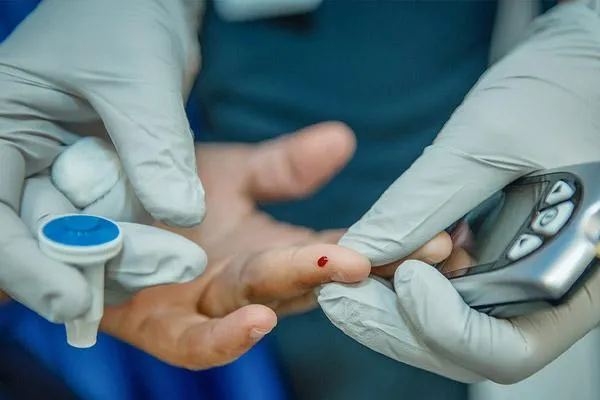
op Tips for Managing Diabetes with Primary Care Support in Kansas City
Living with diabetes doesn’t have to feel overwhelming—especially when you have a trusted primary care provider by your side. At Trinity Woundcare & Wellness Clinic in Kansas City, Kansas, Dr. Judy works closely with patients to create personalized, effective strategies for managing diabetes, reducing complications, and improving quality of life.
Whether you’ve just been diagnosed or have been living with diabetes for years, these primary care–backed tips can help you stay on top of your health.
Why Primary Care Matters in Diabetes Management
Your primary care provider (PCP) is your first line of defense in managing diabetes. They monitor your blood sugar levels, screen for complications, help you adjust medications, and provide guidance on lifestyle changes that can significantly improve your condition.
“Patients who receive consistent primary care are more likely to maintain target A1C levels and avoid diabetes-related complications.”
— American Diabetes Association, 2023
Dr. Judy’s approach at Trinity includes regular check-ins, education, early intervention, and emotional support—all essential in long-term diabetes care.
Tip #1: Know Your Numbers
Monitoring your blood glucose levels regularly is essential. Your A1C, fasting glucose, and post-meal levels provide critical information about how well your diabetes is controlled.
A1C Goal: Generally less than 7%, but this may vary based on age, overall health, and other conditions.
Blood Pressure: Aim for under 130/80 mmHg to reduce the risk of heart and kidney complications.
Cholesterol: Keep LDL (“bad” cholesterol) low and HDL (“good” cholesterol) high to protect heart health.
Your PCP will help interpret these numbers and adjust your care plan accordingly.
Tip #2: Build a Balanced Plate
Nutrition is a cornerstone of diabetes management. With Dr. Judy’s guidance, many Trinity patients switch to healthier eating patterns that stabilize blood sugar without feeling restrictive.
Key dietary strategies:
Focus on fiber-rich foods: whole grains, vegetables, legumes, and fruits in moderation.
Limit refined carbs and sugary drinks, which can spike blood sugar.
Incorporate lean protein and healthy fats for better blood sugar balance.
Consider portion control and meal timing to avoid glucose highs and lows.
Dr. Judy may also refer you to a nutritionist or develop a custom diabetes-friendly meal plan during your visits.
Tip #3: Stay Active (Even a Little Helps)
Physical activity helps your body use insulin more efficiently, lowers blood sugar, and improves circulation—especially important for patients at risk for diabetic wounds or neuropathy.
Aim for 150 minutes of moderate exercise weekly (such as brisk walking).
Add strength training to improve muscle tone and insulin sensitivity.
Stay consistent—even short walks after meals can help regulate glucose.
“Regular physical activity is a key modifiable factor in achieving glycemic control and reducing insulin resistance.”
— Journal of Endocrinology & Metabolism, 2022
Tip #4: Don’t Ignore Foot Health
Foot ulcers and wounds are common—and serious—complications of diabetes. Primary care plays a key role in early detection and preventing infections.
Dr. Judy recommends:
Inspect your feet daily for cuts, blisters, or color changes.
Keep your feet clean and moisturized, but avoid lotion between the toes.
Always wear comfortable, well-fitting shoes.
Schedule routine foot exams at Trinity to catch issues early.
Explore our wound care services here »
Tip #5: Manage Stress and Sleep
Stress and poor sleep can increase blood sugar and make it harder to manage your condition. Dr. Judy encourages a whole-person approach, helping patients address the emotional aspects of diabetes through:
Mindfulness and meditation
Sleep hygiene coaching
Cognitive-behavioral therapy referrals when needed
Mental health is a vital part of your diabetes care plan—and primary care is the place to start the conversation.
Dr. Judy’s Diabetes Support in Kansas City
At Trinity Woundcare & Wellness, we partner with patients to take the guesswork out of diabetes management. Dr. Judy’s combination of medical oversight, lifestyle education, and individualized care helps Kansas City residents feel supported at every step.
You don’t have to navigate diabetes alone. A strong relationship with your primary care provider can make all the difference.
Take Control of Your Diabetes Today
Managing diabetes is a journey, but with the right support, it’s a journey you don’t have to walk alone. Let Dr. Judy and the Trinity team help you take charge of your health.
Call 913-285-5553 or visit 8043 State Ave, Kansas City, KS 66112 to schedule your diabetes care appointment.
About the Author
Dr. Judy holds a Doctorate in Nursing Practice from the University of Kansas and brings more than 24 years of healthcare experience to her patients. Specializing in chronic disease management and wound care, Dr. Judy empowers patients with the tools and guidance they need to take control of their health in a compassionate, personalized way.
Keywords
diabetes management Kansas City, primary care for diabetes Kansas City KS, Dr. Judy diabetes support, Trinity Woundcare & Wellness, diabetic wound care Kansas City, A1C monitoring Kansas City, personalized diabetes care Kansas City, blood sugar control tips, nutrition for diabetes Kansas City, foot care for diabetics Kansas
